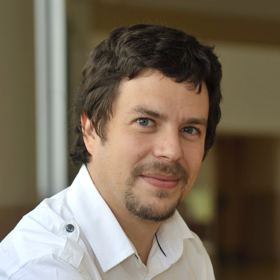Research Grants
-
-
La planificación estratégica es posiblemente la etapa de un proyecto minero que más impacto tiene en su valor económico final. Por lo mismo, es crítico que las tecnologías de planificación minera avancen a la par de los grandes cambios que está experimentado la minería. Leyes más bajas, minerales más profundos, costos estructurales más altos, y otros factores, ha resultado en proyectos de escala y complejidad cada vez mayor. En particular, una gran dificultad es la cada vez mayor proporción de minas subterráneas.
Durante los últimos 10 años se ha visto avances asombrosos en los software ofrecidos para planificación. Estos avances, sin embargo, se han concentrado en las capacidades de visualizar y manipular diseños ( software tipo ”CAD”). Sólo recientemente se ha empezado a mejorar los sistemas de optimización y agendamiento, y esto último, solo en minería de rajo. Esto ha resultado en que la planificación subterránea se sigue haciendo principalmente a mano, resultando en un proceso largo, y donde las soluciones no logran capturar todo el valor de los yacimientos. Casi no existen soluciones comerciales para la minería subterránea, y las que existen están basadas en sistemas heurísticos de alcance limitado.
El equipo proponente de este proyecto, especializado en optimización y computación de alto rendimiento, ha tenido un rol protagónico en el desarrollo de sistemas de planificación minera en rajo. Esto se refleja en múltiples publicaciones científicas, sistemas de software, y una exitosa historia de colaboración con empresas mineras y consultoras.
En este proyecto, proponemos construir un sistema de software para la planificación minera subterránea. Este sistema, basado en metodologías modernas de optimización en gestión de proyectos (integer and constraint programming), se diferencia de las pocas alternativas que hay en ser una tecnología de optimización exacta y de uso general, que produciría soluciones a nivel comprobable de optimalidad para problemas de planificación minera subterránea de distintos métodos (stoping, caving, etc.).
Mediante la implementación de un prototipo académico y pruebas computacionales con las empresas Newmont y Barrick, hemos logrado comprobar que la metodología propuesta funciona, y que aumenta significativamente el valor obtenido por sobre las tecnologías disponibles en el mercado. En múltiples casos de estudio hemos podido aumentar el VPN en 5-10%, adelantar la producción de metal, reducir la cantidad de estéril y desarrollo requerido para lograrlo, y modelar mejor temas como uso consumo de aire y temperaturas.
Las pruebas realizadas a la fecha han sido ad-hoc a cada caso de estudio. Mediante este proyecto proponemos extender nuestra metodología a fin de generalizar su aplicabilidad. Para esto trabajaremos con la empresa consultora chilena NCL, que tiene más de 30 años de experiencia internacional en planificación minera subterránea, para ajustar nuestro software a los flujos de trabajo de la industria minera, y probarlo con su extensivo set de datos y clientes.
El producto final será un software que puede ser utilizado directamente para consultoría en planificación minera subterránea, o como parte de softwares de minería subterránea ya existentes. Para este último fin, trabajaremos con la empresa Australiana Deswik, líder de mercado en sistemas de software para la minería subterránea, quien distribuirá el producto final como parte de sus avanzados sistemas de diseño y agendamiento.
-
Optimization models are important tools for decision-making processes, particularly in the design, operation, and planning of engineering systems. Every day, more and more companies start to use optimization models in their tasks, with great success. Due to that, more complex and larger problems are proposed every day, requiring the development of new techniques and algorithms to deal with these large-scale problems.
One of the keys ideas to optimize large-scale optimization problems are decomposition methods. Some classical methods, like Dantzig-Wolfe decomposition or Column Generation, are nowadays the standard way to solve problems like Vehicle Routing, Crew Scheduling, and many other applications. Another decomposition method is Benders decomposition, which has become very popular in the recent years, with more than 12000 papers published in the last decade. This method is particularly well known for solving stochastic optimization models, due to the structure of these problems that includes a master problem with the so-called first-stage decision, plus additional subproblems for each stochastic scenario. Benders decomposition method allows to generate a master problem with the first stage decisions, and successively approximate the second stage by linear cuts constructed using the duals of the subproblems.
The principal researcher of this proposal has been studying a decomposition method based on the Bienstock- Zuckerberg algorithm, that has been successfully applied for resource-constrained production scheduling problems, (RCPSP) appearing in the context of open pit mine planning models. This method can also be applied for automatic aggregating of scenarios for stochastic problems, as shown in Espinoza & Moreno (2014) and later generalized for general two-stage stochastic problems by Song & Luedtke (2018).
In this proposal, we will focus on the integration of Benders decomposition method and our proposed decomposition method. We will particularly focus on the context of stochastic network design. We start from the stochastic version of the classic network design problem named fixed-charge multicommodity flow, as a proof-of-concept of the potential impact of integrating these two approaches. We show that this automatic scenario aggregation method can be naturally integrated with a Benders decomposition method for this problem, resulting in a Benders decomposition with aggregated scenarios. We propose that these results can be generalized for other Network Design problems and more general two-stage stochastic problems.
Finally, we also propose to study the integration of our automatic aggregation method and Benders decomposition method in a different context. As mentioned before, the origin of our automatic aggregation method comes from the BZ algorithm applied to RCPSP. We are particularly interested in multi-mode RCPSP, in which activities must be scheduled in some period, but then these activities must be assigned to one of different modes, that affect the resources usage and duration of the activity. The structure of this problem fits well in a Benders approach, where the scheduling part of the problem is solved in a master problem, and the mode selection is done through Benders cuts on the master problem. On the other hand, the generated master problems of the method fits well with the structure required by the BZ algorithms to work, suggesting that integrating these two decompositions methods can allow solving large-scale instances of multimode RCPSP.
The focus of the project is to generate new exact optimization methods than can cover a large class of optimization problems. Proposed methods are based on the structural mathematical properties of integer programming models. Computational experiments will be conducted to demonstrate the efficiency of these methods. The project includes several PhD and master students, as well as international collaboration with world-class experts in optimization methods. More details can be found in the complete proposal.
-
This proposal aims to create a new network of cooperation between three teams working on optimization methods for large and difficult classical problems on networks. We focus on three main classical problems: Stochastic Network Design, Resource-constrained Production Scheduling and Competitive Facility Location problems. All three teams have a proved expertise on these three subjects, with similar and complementary methodological approaches to solve them, including the use of decomposition algorithms for exact optimization of large-scale instances, with a particular focus on the computational performance of these algorithms. The teams include in total 4 Senior researchers, 3 Junior researchers and 3 PhD students, with a potential to include more students in the future. We plan several missions with researchers and students from all countries visiting all the other countries, including a Workshop with all the team on the second year. The relevance of these problems will allow to transfer these results to the industry, particularly in areas like telecommunication, logistic, transportation and natural resources.
-
-
-


